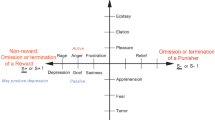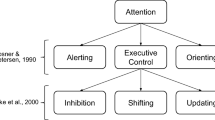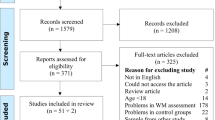Abstract
17-Beta-estradiol (E2) stimulates neural plasticity and dopaminergic transmission in the prefrontal cortex, which is critically involved in attentional control, working memory, and other executive functions. Studies investigating E2’s actions on prefrontally mediated behavior in the course of the menstrual cycle or during hormone replacement therapy are inconclusive, with numerous null findings as well as beneficial and detrimental effects. The current study focused on the effect of E2 on attentional performance, as animal studies indicate that supraphysiological doses (i.e., above estrous cycle levels) of E2 have beneficial effects on measures of attention in female rodents. To translate these findings to humans, we administered 12 mg E2-valerate or placebo orally to 34 naturally cycling women in the low-hormone early follicular phase using a randomized, double-blinded, pre-post design. Behavioral performance was tested twice during baseline and E2 peak, where E2 levels reached mildly supraphysiological levels in the E2 group. Aside from mainly prefrontally mediated tasks of attention, working memory, and other executive functions, we employed tasks of affectively modulated attention, emotion recognition, and verbal memory. E2 administration had a significant, but subtle negative impact on general processing speed and working memory performance. These effects could be related to an overstimulation of dopaminergic transmission. The negative effect of supraphysiological E2 on working memory connects well to animal literature. There were no effects on attentional performance or any other measure. This could be explained by different E2 levels being optimal for changing behavioral performance in specific tasks, which likely depends on the brain regions involved.



Similar content being viewed by others
References
Baayen RH, Davidson DJ, Bates DM (2008) Mixed-effects modeling with crossed random effects for subjects and items. J Mem Lang 59:390–412. https://doi.org/10.1016/j.jml.2007.12.005
Bäckman L, Ginovart N, Dixon RA, Wahlin TBR, Wahlin Å, Halldin C, Farde L (2000) Age-related cognitive deficits mediated by changes in the striatal dopamine system. AJP 157:635–637. https://doi.org/10.1176/ajp.157.4.635
Barnes P, Staal V, Muir J, Good MA (2006) 17-β estradiol administration attenuates deficits in sustained and divided attention in young ovariectomized rats and aged acyclic female rats. Behav Neurosci 120:1225–1234
Bates D, Maechler M, Bolker BM, Walker SC (2015) Fitting linear mixed-effects models using lme4. J Stat Softw 67:1–48
Bayer J, Gläscher J, Finsterbusch J, Schulte LH, Sommer T (2018) Linear and inverted U-shaped dose-response functions describe estrogen effects on hippocampal activity in young women. Nat Commun 9:1220. https://doi.org/10.1038/s41467-018-03679-x
Bayer J, Rune G, Schultz H, Tobia MJ, Mebes I, Katzler O, Sommer T (2015) The effect of estrogen synthesis inhibition on hippocampal memory. Psychoneuroendocrinology 56:213–225. https://doi.org/10.1016/j.psyneuen.2015.03.011
Bayer J, Schultz H, Gamer M, Sommer T (2014) Menstrual-cycle dependent fluctuations in ovarian hormones affect emotional memory. Neurobiol Learn Mem 110:55–63. https://doi.org/10.1016/j.nlm.2014.01.017
Bean LA, Ianov L, Foster TC (2014) Estrogen receptors, the hippocampus, and memory. Neuroscientist 20:534–545. https://doi.org/10.1177/1073858413519865
Bohacek J, Daniel JM (2010) The beneficial effects of estradiol on attentional processes are dependent on timing of treatment initiation following ovariectomy in middle-aged rats. Psychoneuroendocrinology 35:694–705. https://doi.org/10.1016/j.psyneuen.2009.10.010
Brassen S, Gamer M, Büchel C (2011) Anterior cingulate activation is related to a positivity bias and emotional stability in successful aging. Biol Psychiatry 70:131–137. https://doi.org/10.1016/j.biopsych.2010.10.013
Bühner M, Schmidt-Atzert L, Richter S, Grieshaber E (2002) Selbstbeurteilungen der Aufmerksamkeit: Ein Vergleich zwischen Hirngeschädigten und Gesunden. Z Neuropsychol 13:263–269. https://doi.org/10.1024//1016-264X.13.4.263
Darne J, Mcgarrigle HHG, Lachelin GCL (1987) Saliva oestriol, oestradiol, oestrone and progesterone levels in pregnancy: spontaneous labour at term is preceded by a rise in the saliva oestriol:progesterone ratio. BJOG Int J Obstet Gynaecol 94:227–235. https://doi.org/10.1111/j.1471-0528.1987.tb02359.x
Derntl B, Kryspin-Exner I, Fernbach E, Moser E, Habel U (2008) Emotion recognition accuracy in healthy young females is associated with cycle phase. Horm Behav 53:90–95. https://doi.org/10.1016/j.yhbeh.2007.09.006
Dresler T, Mériau K, Heekeren HR, van der Meer E (2009) Emotional Stroop task: effect of word arousal and subject anxiety on emotional interference. Psychol Res 73:364–371. https://doi.org/10.1007/s00426-008-0154-6
Duff SJ, Hampson E (2000) A beneficial effect of estrogen on working memory in postmenopausal women taking hormone replacement therapy. Horm Behav 38:262–276. https://doi.org/10.1006/hbeh.2000.1625
Edwards LJ, Muller KE, Wolfinger RD, et al (2008) An R2 statistic for fixed effects in the linear mixed model. Stat Med 27:6137–6157. https://doi.org/10.1002/sim.3429
Epperson CN, Amin Z, Ruparel K, Gur R, Loughead J (2012) Interactive effects of estrogen and serotonin on brain activation during working memory and affective processing in menopausal women. Psychoneuroendocrinology 37:372–382. https://doi.org/10.1016/j.psyneuen.2011.07.007
Finkel D, McArdle JJ, Reynolds CA et al (2009) Genetic variance in processing speed drives variation in aging of spatial and memory abilities. Dev Psychol 45:820–834. https://doi.org/10.1037/a0015332
Földényi M, Imhof K, Steinhausen HC (2000) Klinische Validität der computerunterstützten TAP bei Kindern mit Aufmerksamkeits-/Hyperaktivitätsstörungen. Z Neuropsychol 11:154–167
Frick KM, Kim J, Tuscher JJ, Fortress AM (2015) Sex steroid hormones matter for learning and memory: estrogenic regulation of hippocampal function in male and female rodents. Learn Mem 22:472–493. https://doi.org/10.1101/lm.037267.114
Funahashi S (2017) Working memory in the prefrontal cortex. Brain Sci 7. https://doi.org/10.3390/brainsci7050049
de Groot RHM, Hornstra G, Roozendaal N, Jolles J (2003) Memory performance, but not information processing speed, may be reduced during early pregnancy. J Clin Exp Neuropsychol 25:482–488. https://doi.org/10.1076/jcen.25.4.482.13871
Hampson E, Morley EE (2013) Estradiol concentrations and working memory performance in women of reproductive age. Psychoneuroendocrinology 38:2897–2904. https://doi.org/10.1016/j.psyneuen.2013.07.020
Hampson E, Phillips S-D, Duff-Canning SJ, Evans KL, Merrill M, Pinsonneault JK, Sadée W, Soares CN, Steiner M (2015) Working memory in pregnant women: relation to estrogen and antepartum depression. Horm Behav 74:218–227. https://doi.org/10.1016/j.yhbeh.2015.07.006
Han HJ, Lee K, Kim HT, Kim H (2014) Distinctive amygdala subregions involved in emotion-modulated Stroop interference. Soc Cogn Affect Neurosci 9:689–698. https://doi.org/10.1093/scan/nst021
Helmstaedter C, Lendt M, Lux S (2001) VLMT—Verbaler Lern- und Merkfähigkeitstest [Verbal Learning and Memory Test]. Hogrefe, Göttingen
Hidalgo-Lopez E, Pletzer B (2017) Interactive effects of dopamine baseline levels and cycle phase on executive functions: the role of progesterone. Front Neurosci 11. https://doi.org/10.3389/fnins.2017.00403
Hogervorst E, Williams J, Budge M, Riedel W, Jolles J (2000) The nature of the effect of female gonadal hormone replacement therapy on cognitive function in post-menopausal women: a meta-analysis. Neuroscience 101:485–512
Holmes MM, Wide JK, Galea LAM (2002) Low levels of estradiol facilitate, whereas high levels of estradiol impair, working memory performance on the radial arm maze. Behav Neurosci 116:928–934
Jacobs E, D’Esposito M (2011) Estrogen shapes dopamine-dependent cognitive processes: implications for women’s health. J Neurosci 31:5286–5293. https://doi.org/10.1523/JNEUROSCI.6394-10.2011
Jaeger B (2017) r2glmm: Computes R squared for mixed (Multilevel) models. R package version 0.1.2. https://www.CRAN.R-project.org/package=r2glmm. Accessed 01 Sept 2018
Janowsky JS, Chavez B, Orwoll E (2000) Sex steroids modify working memory. J Cogn Neurosci 12:407–414. https://doi.org/10.1162/089892900562228
Kampen DL, Sherwin BB (1994) Estrogen use and verbal memory in healthy postmenopausal women. Obstet Gynecol 83:979–983
Kane MJ, Engle RW (2002) The role of prefrontal cortex in working-memory capacity, executive attention, and general fluid intelligence: an individual-differences perspective. Psychon Bull Rev 9:637–671. https://doi.org/10.3758/BF03196323
Keenan PA, Ezzat WH, Ginsburg K, Moore GJ (2001) Prefrontal cortex as the site of estrogen’s effect on cognition. Psychoneuroendocrinology 26:577–590
Kritzer MF, Kohama SG (1999) Ovarian hormones differentially influence immunoreactivity for dopamine β-hydroxylase, choline acetyltransferase, and serotonin in the dorsolateral prefrontal cortex of adult rhesus monkeys. J Comp Neurol 409:438–451. https://doi.org/10.1002/(SICI)1096-9861(19990705)409:3<438::AID-CNE8>3.0.CO;2-5
Krug R, Born J, Rasch B (2006) A 3-day estrogen treatment improves prefrontal cortex-dependent cognitive function in postmenopausal women. Psychoneuroendocrinology 31:965–975. https://doi.org/10.1016/j.psyneuen.2006.05.007
Leeners B, Kruger THC, Geraedts K, Tronci E, Mancini T, Ille F, Egli M, Röblitz S, Saleh L, Spanaus K, Schippert C, Zhang Y, Hengartner MP (2017) Lack of associations between female hormone levels and visuospatial working memory, divided attention and cognitive bias across two consecutive menstrual cycles. Front Behav Neurosci 11:120. https://doi.org/10.3389/fnbeh.2017.00120
Long NM, Öztekin I, Badre D (2010) Separable prefrontal cortex contributions to free recall. J Neurosci 30:10967–10976. https://doi.org/10.1523/JNEUROSCI.2611-10.2010
Luders E, Gingnell M, Poromaa IS, Engman J, Kurth F, Gaser C (2018) Potential brain age reversal after pregnancy: younger brains at 4–6 weeks postpartum. Neuroscience 386:309–314. https://doi.org/10.1016/j.neuroscience.2018.07.006
Luine VN (2008) Sex steroids and cognitive function. J Neuroendocrinol 20:866–872. https://doi.org/10.1111/j.1365-2826.2008.01710.x
Lundqvist D, Flykt A, Öhman A (1998) The Karolinska Directed Emotional Faces-KDEF. CD-ROM from Department of Clinical Neuroscience, Psychology section, Karolinska Institutet, Stockholm ISBN 91-630-7164-9
Mannarelli D, Pauletti C, Grippo A, Amantini A, Augugliaro V, Currà A, Missori P, Locuratolo N, de Lucia MC, Rinalduzzi S, Fattapposta F (2015) The role of the right dorsolateral prefrontal cortex in phasic alertness: evidence from a contingent negative variation and repetitive transcranial magnetic stimulation study. Neural Plast 2015:1–9
McGaughy J, Sarter M (1999) Effects of ovariectomy, 192 IgG-saporin-induced cortical cholinergic deafferentation, and administration of estradiol on sustained attention performance in rats. Behav Neurosci 113:1216–1232
Mehta R, Kurmi N, Kaur M, Verma A (2017) Effect of pregnancy on the auditory and visual reaction time. Int J Res Med Sci 5:525–528. https://doi.org/10.18203/2320-6012.ijrms20170144
Ndefo UA, Mosely N (2010) Estradiol valerate and estradiol valerate/dienogest (natazia) tablets. P T 35:614–617
Nene AS, Pazare PA (2010) A study of auditory reaction time in different phases of the normal menstrual cycle. Indian J Physiol Pharmacol 54:386–390
O’Leary P, Boyne P, Flett P et al (1991) Longitudinal assessment of changes in reproductive hormones during normal pregnancy. Clin Chem 37:667–672
Olesen PJ, Westerberg H, Klingberg T (2004) Increased prefrontal and parietal activity after training of working memory. Nat Neurosci 7:75–79. https://doi.org/10.1038/nn1165
Pishnamazi M, Tafakhori A, Loloee S, Modabbernia A, Aghamollaii V, Bahrami B, Winston JS (2016) Attentional bias towards and away from fearful faces is modulated by developmental amygdala damage. Cortex 81:24–34. https://doi.org/10.1016/j.cortex.2016.04.012
Portin R, Polo-Kantola P, Polo O, Koskinen T, Revonsuo A, Irjala K, Erkkola R (1999) Serum estrogen level, attention, memory and other cognitive functions in middle-aged women. Climacteric 2:115–123. https://doi.org/10.3109/13697139909025575
R Core Team (2014). R: A language and environment for statistical computing. R foundation for statistical computing. Vienna, Austria. https://www.R-project.org/. Accessed 15 June 2018
Rosenberg L, Park S (2002) Verbal and spatial functions across the menstrual cycle in healthy young women. Psychoneuroendocrinology 27:835–841. https://doi.org/10.1016/S0306-4530(01)00083-X
Rubia K, Smith AB, Brammer MJ, Taylor E (2003) Right inferior prefrontal cortex mediates response inhibition while mesial prefrontal cortex is responsible for error detection. NeuroImage 20:351–358. https://doi.org/10.1016/S1053-8119(03)00275-1
Schreckenberger M, Amberg R, Scheurich A, Lochmann M, Tichy W, Klega A, Siessmeier T, Gründer G, Buchholz HG, Landvogt C, Stauss J, Mann K, Bartenstein P, Urban R (2004) Acute alcohol effects on neuronal and attentional processing: striatal reward system and inhibitory sensory interactions under acute ethanol challenge. Neuropsychopharmacology 29:1527–1537. https://doi.org/10.1038/sj.npp.1300453
Shanmugan S, Epperson CN (2014) Estrogen and the prefrontal cortex: towards a new understanding of estrogen’s effects on executive functions in the menopause transition. Hum Brain Mapp 35:847–865. https://doi.org/10.1002/hbm.22218
Smith YR, Bowen L, Love TM, Berent-Spillson A, Frey KA, Persad CC, Reame NK, Koeppe RA, Zubieta JK (2011) Early initiation of hormone therapy in menopausal women is associated with increased hippocampal and posterior cingulate cholinergic activity. J Clin Endocrinol Metab 96:E1761–E1770. https://doi.org/10.1210/jc.2011-0351
Solís-Ortiz S, Corsi-Cabrera M (2008) Sustained attention is favored by progesterone during early luteal phase and visuo-spatial memory by estrogens during ovulatory phase in young women. Psychoneuroendocrinology 33:989–998. https://doi.org/10.1016/j.psyneuen.2008.04.003
Steyer R, Schwenkmezger P, Notz P, Eid M (1994) Testtheoretische Analysen des Mehrdimensionalen Befindlichkeitsfragebogen (MDBF). Diagnostica 40(4):320–328
Sundström Poromaa I, Gingnell M (2014) Menstrual cycle influence on cognitive function and emotion processing—from a reproductive perspective. Front Neurosci 8:380. https://doi.org/10.3389/fnins.2014.00380
Symonds CS, Gallagher P, Thompson JM, Young AH (2004) Effects of the menstrual cycle on mood, neurocognitive and neuroendocrine function in healthy premenopausal women. Psychol Med 34:93–102. https://doi.org/10.1017/S0033291703008535
Tabachnick BG, Fidell LS (2014) Using multivariate statistics, 6th edn. Pearson Education, Harlow
Turken U, Whitfield-Gabrieli S, Bammer R, Baldo JV, Dronkers NF, Gabrieli JDE (2008) Cognitive processing speed and the structure of white matter pathways: convergent evidence from normal variation and lesion studies. NeuroImage 42:1032–1044. https://doi.org/10.1016/j.neuroimage.2008.03.057
Twisk J, Bosman L, Hoekstra T et al (2018) Different ways to estimate treatment effects in randomised controlled trials. Contemp Clin Trials Commun 10:80–85
Van Breukelen GJP (2006) ANCOVA versus change from baseline: more power in randomized studies, more bias in nonrandomized studies [corrected]. J Clin Epidemiol 59:920–925. https://doi.org/10.1016/j.jclinepi.2006.02.007
Vijayraghavan S, Wang M, Birnbaum SG, Williams GV, Arnsten AFT (2007) Inverted-U dopamine D1 receptor actions on prefrontal neurons engaged in working memory. Nat Neurosci 10:376–384. https://doi.org/10.1038/nn1846
Võ ML, Conrad M, Kuchinke L et al (2009) The Berlin affective word list reloaded (BAWL-R). Behav Res Methods 41:534–538
Walf AA, Frye CA (2006) A review and update of mechanisms of estrogen in the hippocampus and amygdala for anxiety and depression behavior. Neuropsychopharmacology 31:1097–1111
Wide JK, Hanratty K, Ting J, Galea LAM (2004) High level estradiol impairs and low level estradiol facilitates non-spatial working memory. Behav Brain Res 155:45–53. https://doi.org/10.1016/j.bbr.2004.04.001
Willuhn I, Steiner H (2008) Motor-skill learning in a novel running-wheel task is dependent on D1 dopamine receptors in the striatum. Neuroscience 153:249–258. https://doi.org/10.1016/j.neuroscience.2008.01.041
Woolley CS, McEwen BS (1993) Roles of estradiol and progesterone in regulation of hippocampal dendritic spine density during the estrous cycle in the rat. J Comp Neurol 336:293–306. https://doi.org/10.1002/cne.903360210
Zhang S, Paul J, Nantha-Aree M, Buckley N, Shahzad U, Cheng J, DeBeer J, Winemaker M, Wismer D, Punthakee D, Avram V, Thabane L (2014) Empirical comparison of four baseline covariate adjustment methods in analysis of continuous outcomes in randomized controlled trials. Clin Epidemiol 6:227–235. https://doi.org/10.2147/CLEP.S56554
Zimmermann P, Fimm B (2002) A test battery for attentional performance. In: Applied neuropsychology of attention. Theory, diagnosis and rehabilitation. Psychology Press, London, pp 110–151
Zimmermann P, Fimm B (2009) Testbatterie zur Aufmerksamkeitsprüfung-Version 2.2:(TAP);[Handbuch]. Psytest
Funding
The project was supported by a grant of the German Research Foundation (DFG SO 952/6-1), a grant of the state of Hamburg (UHH LFF FV 27), and the German Society for Psychosomatic Obstetrics and Gynecology (Deutsche Gesellschaft für Psychosomatische Frauenheilkunde und Geburtshilfe; DGPFG).
Author information
Authors and Affiliations
Corresponding author
Ethics declarations
Participants received financial compensation and gave written informed consent according to the Declaration of Helsinki. Ethics approval was obtained from the Ethics Committee of the Hamburg Medical Association (PV3612).
Conflict of interest
The authors declare that there is no conflict of interest.
Electronic supplementary material
ESM 1
(DOC 126 kb)
Rights and permissions
About this article
Cite this article
Sommer, T., Richter, K., Singer, F. et al. Effects of the experimental administration of oral estrogen on prefrontal functions in healthy young women. Psychopharmacology 235, 3465–3477 (2018). https://doi.org/10.1007/s00213-018-5061-y
Received:
Accepted:
Published:
Issue Date:
DOI: https://doi.org/10.1007/s00213-018-5061-y




